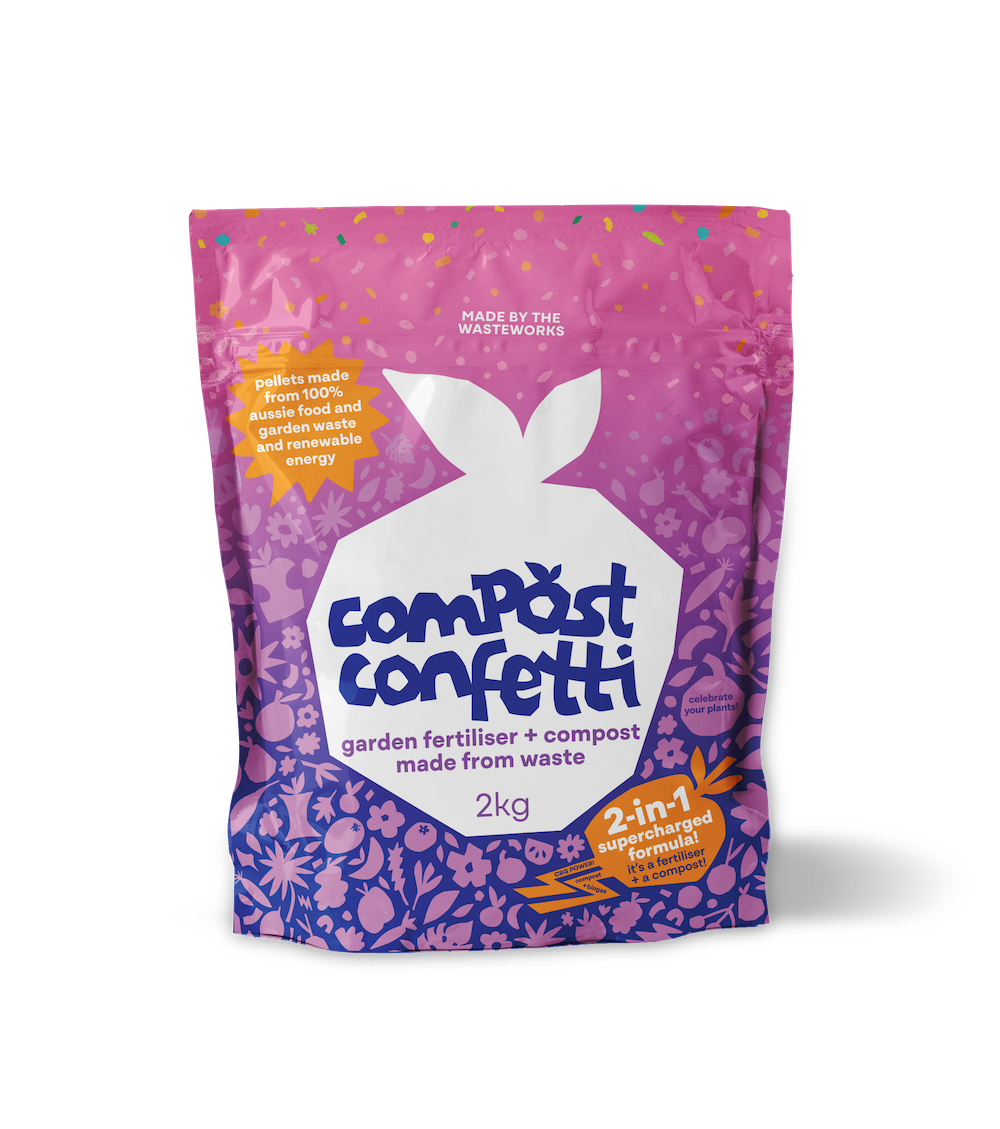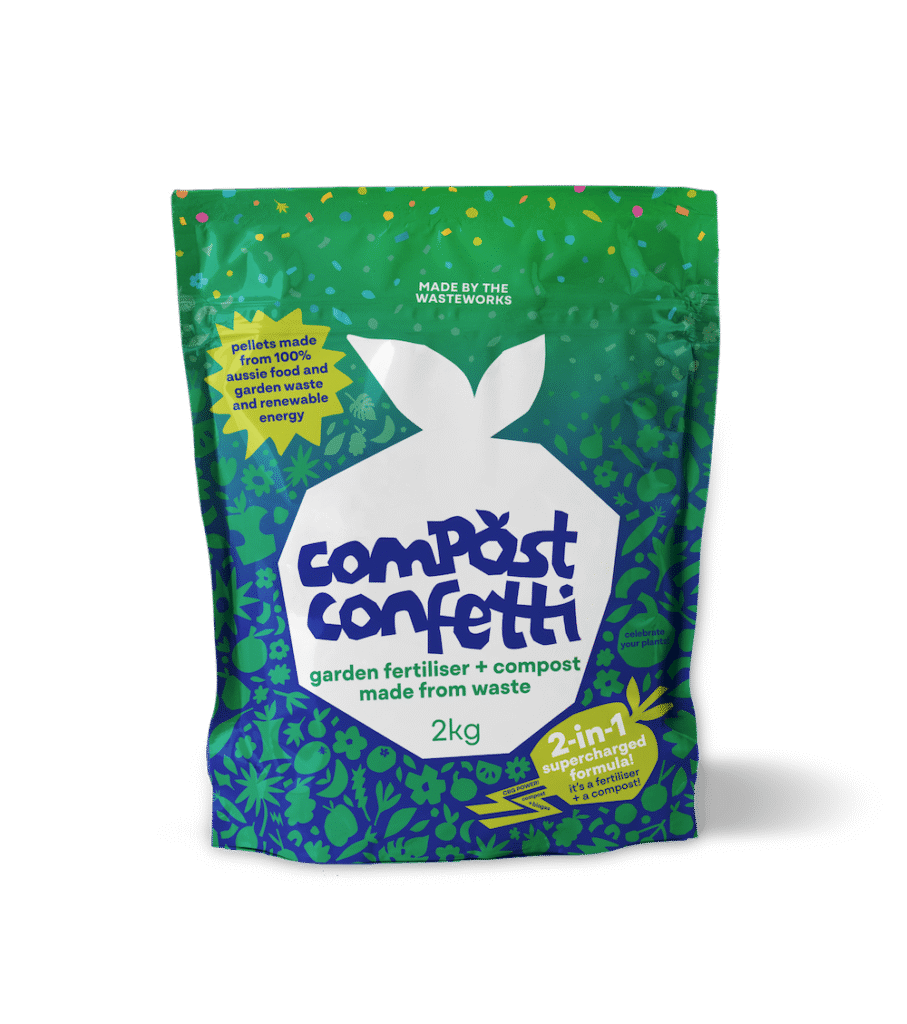Description
Compost Confetti – Eco-Friendly Fertiliser Pellets for Healthy Gardens
Celebrate your garden with Compost Confetti – nutrient-packed fertiliser pellets made from recycled food and green waste. These slow-release pellets feed your soil, boost microbial activity, and promote strong, healthy plant growth while helping to reduce landfill waste.
Perfect for vegetables, flowers, and potted plants, Compost Confetti is your garden’s sustainable solution for vibrant results and a greener planet.
🔧 Key Features
-
Sustainable Fertiliser – Made from recycled food and garden waste.
-
Slow-Release Nutrition – Provides long-lasting plant feeding.
-
Microbe Boosting – Enhances soil life for improved nutrient uptake.
-
Versatile Use – Suitable for gardens, pots, and compost teas.
-
Eco Impact – Helps divert up to 200 tonnes of waste from landfill yearly.
-
Locally Made – Produced in Brisbane, Australia.
✅ Why Choose Compost Confetti
-
Eco-Friendly – Supports a circular economy and sustainable gardening.
-
Stronger Growth – Balanced nutrients for vegetables, flowers, and herbs.
-
Soil Health – Builds microbial diversity and long-term fertility.
-
Easy Application – Sprinkle, mix, or brew as compost tea.
🎯 Ideal For
-
Garden beds and veggie patches
-
Pots and planters
-
Compost tea brewing
-
Sustainable home gardeners
📏 Specs Summary
-
Product: Compost Confetti
-
Form: Fertiliser pellets
-
Sizes Available: 2 kg & 4 kg packs
-
Application Rates:
-
Garden beds: 4–10 handfuls per m²
-
Pots: 2 handfuls per 20 cm pot
-
Compost tea: 1 cup (~100 g) in 10 L water
-
❓ FAQs
Q: What is Compost Confetti made from?
A: Recycled food and garden waste, processed into nutrient-rich pellets.
Q: How often should I use it?
A: Every 4–8 weeks depending on plant type and growth stage.
Q: Can it be used in pots?
A: Yes, just sprinkle around the base or mix into potting soil.
Q: Is it safe for all plants?
A: Yes, it’s suitable for vegetables, flowers, herbs, and ornamentals.
Q: How do I make compost tea with it?
A: Steep 1 cup of pellets in 10 L of non-chlorinated water for 24–48 hours.


